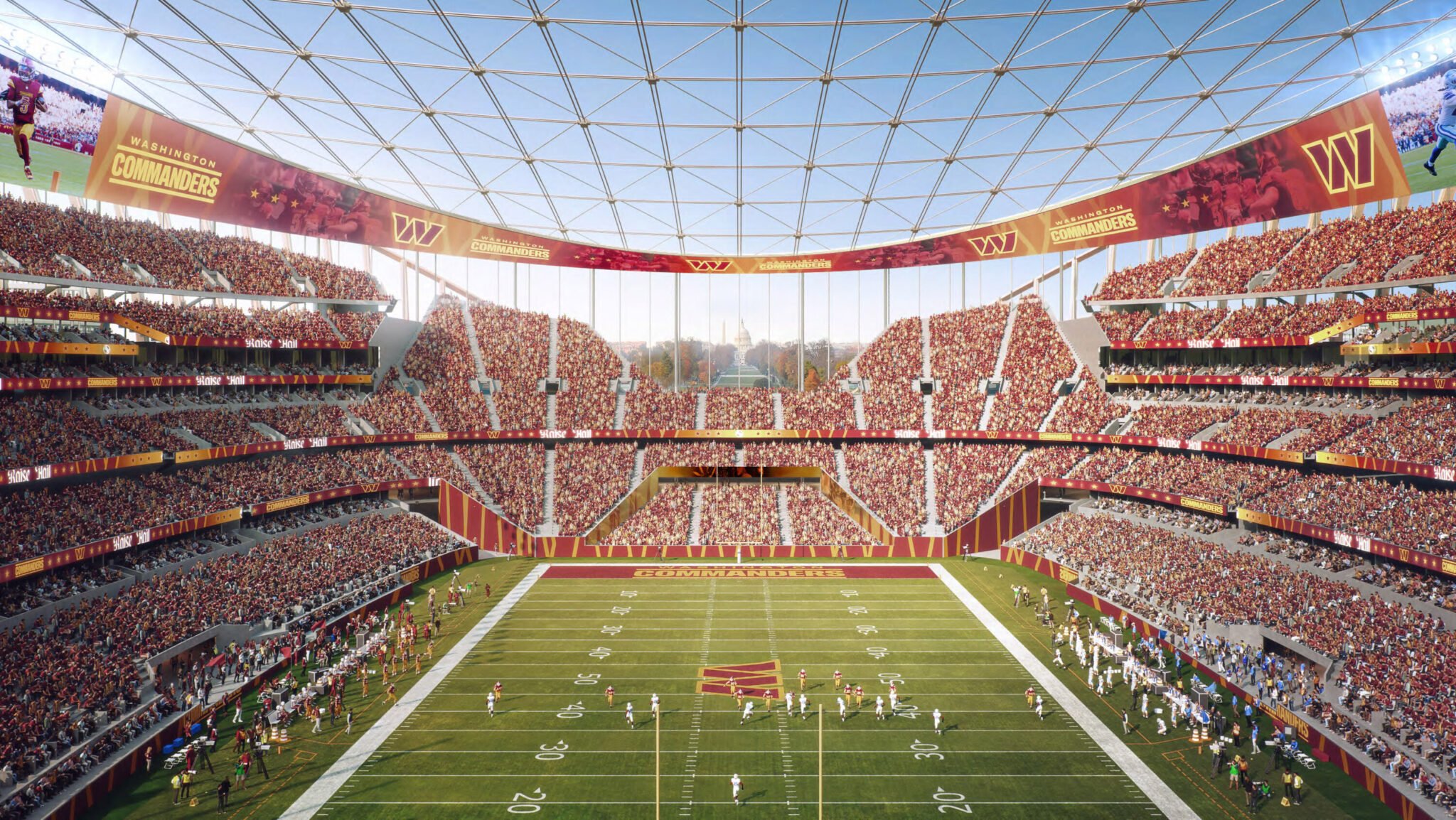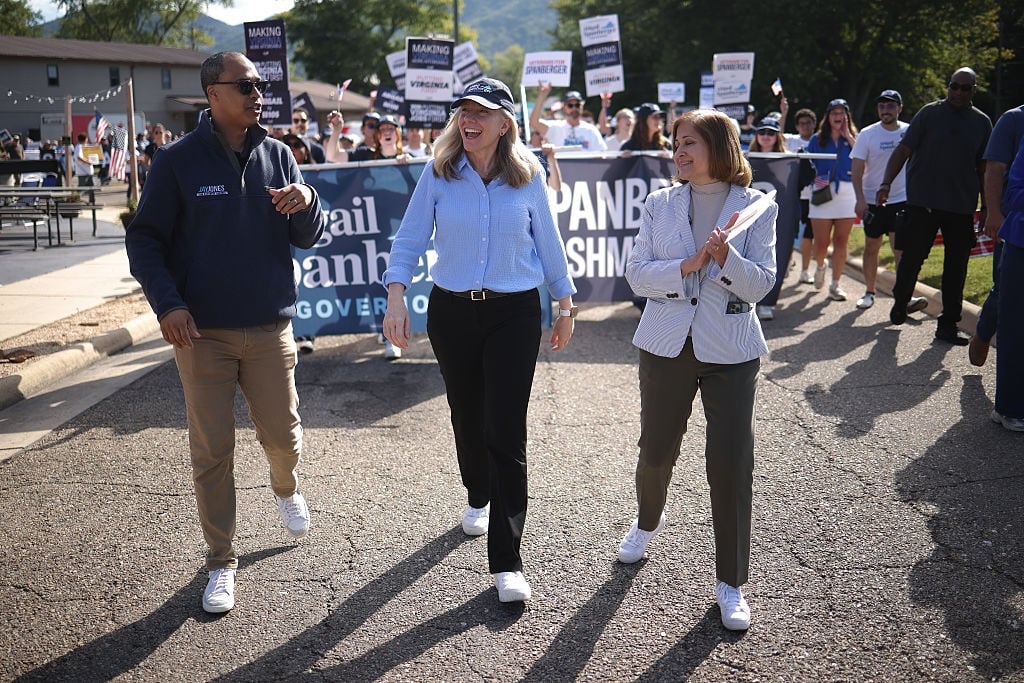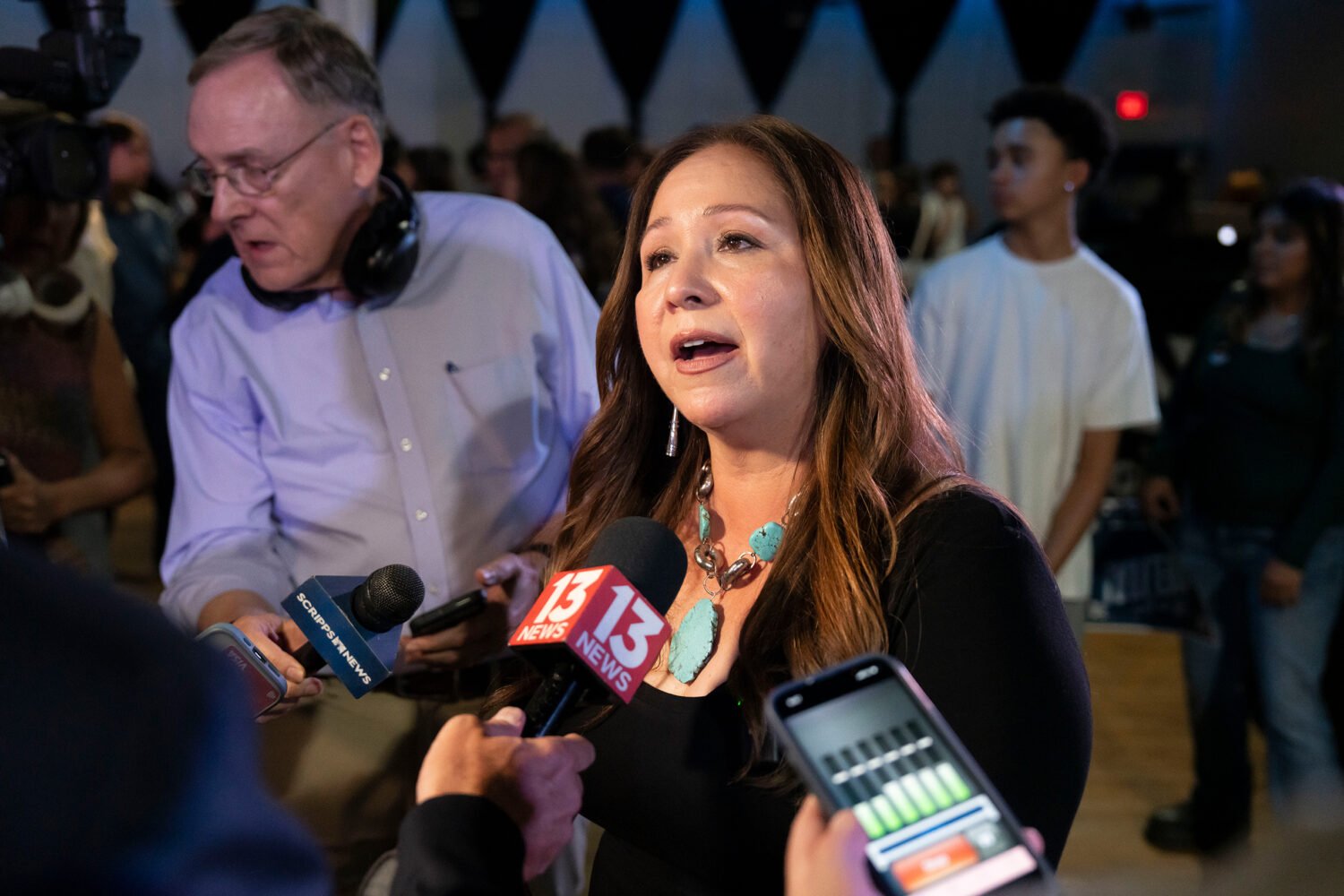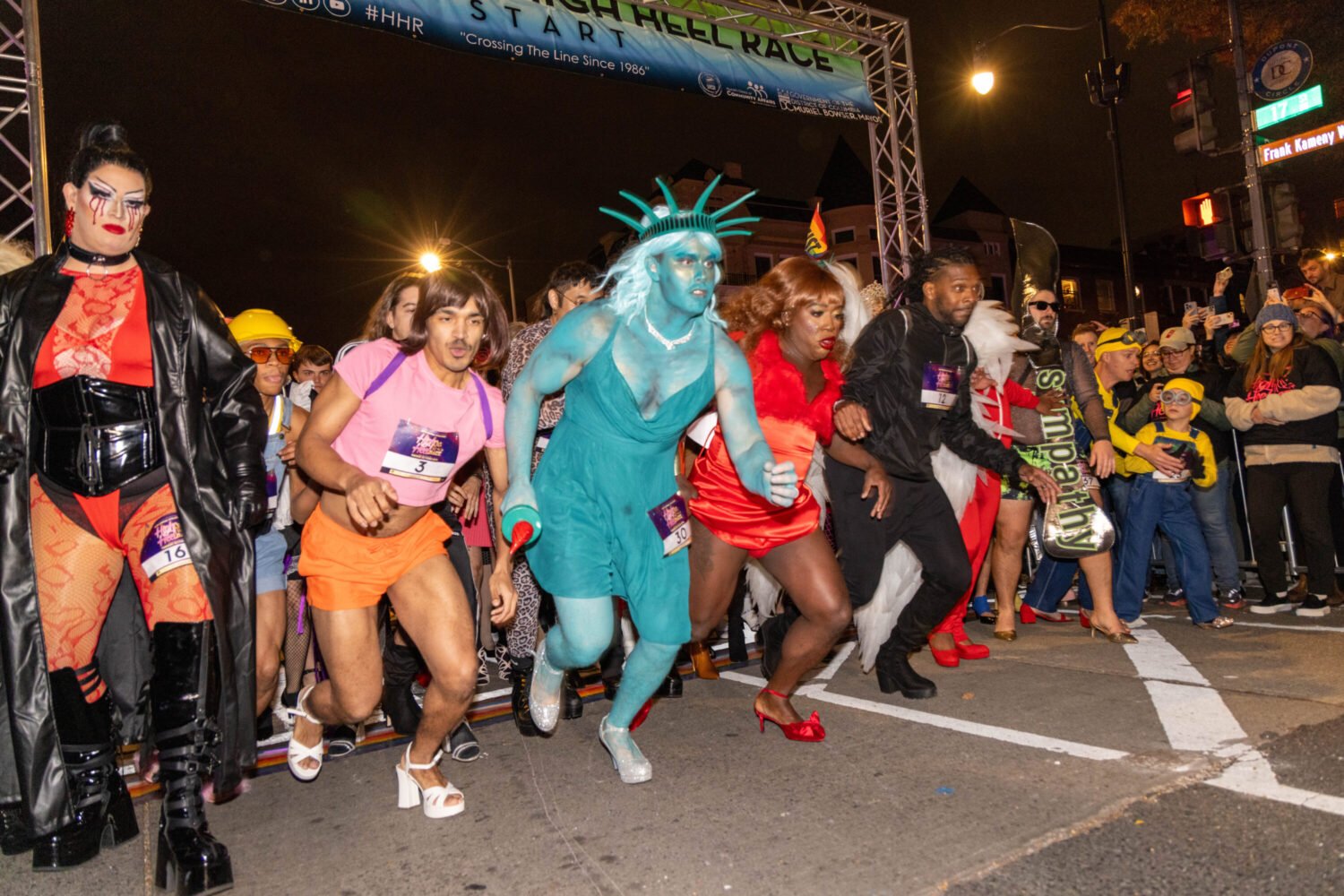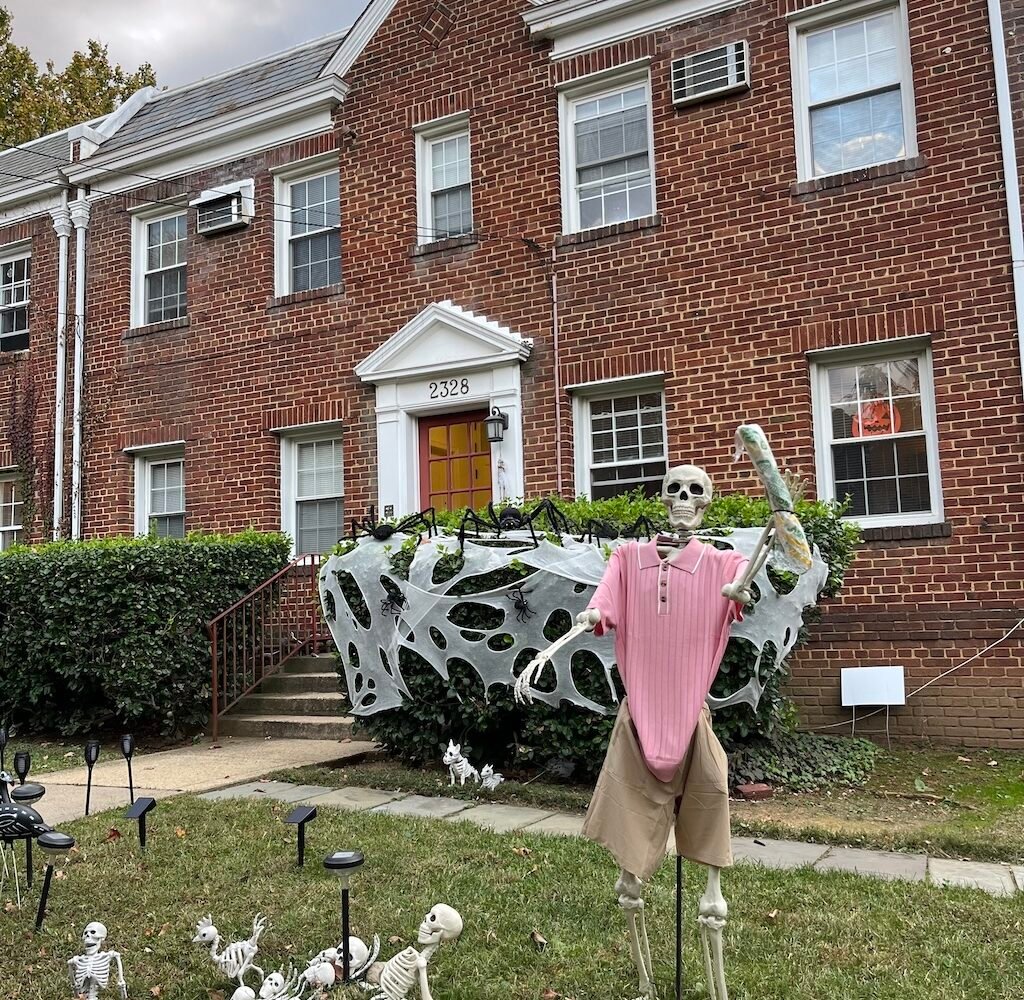Today, the DC Council took a first vote in favor of the deal to build a new stadium at the RFK campus in order to bring the Commanders back to the District. The $3.7 billion deal has taken months of back and forth between the team, the council, and the mayor. Now, if one were to employ a bad sports metaphor—like too many councilmembers did today—one could say it’s finally in the red zone.
Who voted how? The deal received nine votes in favor and three votes against. Councilmembers Robert White, Brianne Nadeau, and Matthew Frumin voted against it. White and Nadeau cited a number of reasons, including what they see as a deal that offers too much in subsidies to the Commanders. Frumin’s no vote was somewhat of a surprise. He said part of his hesitancy is the lack of penalties should the Commanders not deliver or deliver late on the mixed-used and affordable housing parts of the development. (The deal also includes building housing, some of which will be affordable housing).
What got them closer to the finish line: After a hearing where the council grilled Mayor Muriel Bowser over the deal on Wednesday, this version includes $674 million more in future revenue for the city than the original proposal, according to Chairman Phil Mendelson. The amended deal made changes so that the city will now split parking revenue with the Commanders and also will direct the sales tax from concessions and merchandise to the city general fund. It also includes environmental protections that were important to a number of councilmembers. Councilmembers Janeese Lewis George and Zachary Parker, who were widely seen as potential swing votes on the deal, held out until they received commitments that the deal would include a project labor agreement and a labor peace agreement. Ultimately, the deal will include a massive financial investment from the city including more than $1 billion in public funds. The Commanders have also committed to providing financial assistance to Ward 7 in the form of $20 million for the creation a Commanders Youth Academy, $3 million in grocery subsidies, and $7 million in local business subsides.
Councilmember Robert White apparently miscounted: Before today’s legislative session, White predicted there were five votes to scrap the deal. That didn’t happen. White did seem determined to amend the deal, though. He proposed four separate amendments, which all failed. The first two were intended to generate more revenue for DC through taxes or revenue-sharing and the fourth aimed to address any displacement caused by the deal. In his introductions, White said he feels as though DC is not getting enough in return for its financial investment in the construction of the stadium. His third amendment, which picked up the most steam, aimed to generate more accountability when it came to the mixed-use portions of the development. White contended at the meeting that there weren’t enough penalties to ensure the Commanders, who are acting as master developer, deliver on that part of the deal.
What’s next? One of the DC Council’s quirks is that all legislation gets voted on twice, so they will vote again on the deal on September 17. Between now and then the bill can be amended, and today some councilmembers did express wanting to see some tweaks—in particular when it came to creating an accountability mechanism to ensure the proposed housing is built. Between now and then the council will also gain another voting member: Trayon White, who recently won a special election for Ward 8. So far, White has said he supports bringing the team back to DC but has questions about how equitable the deal is.

